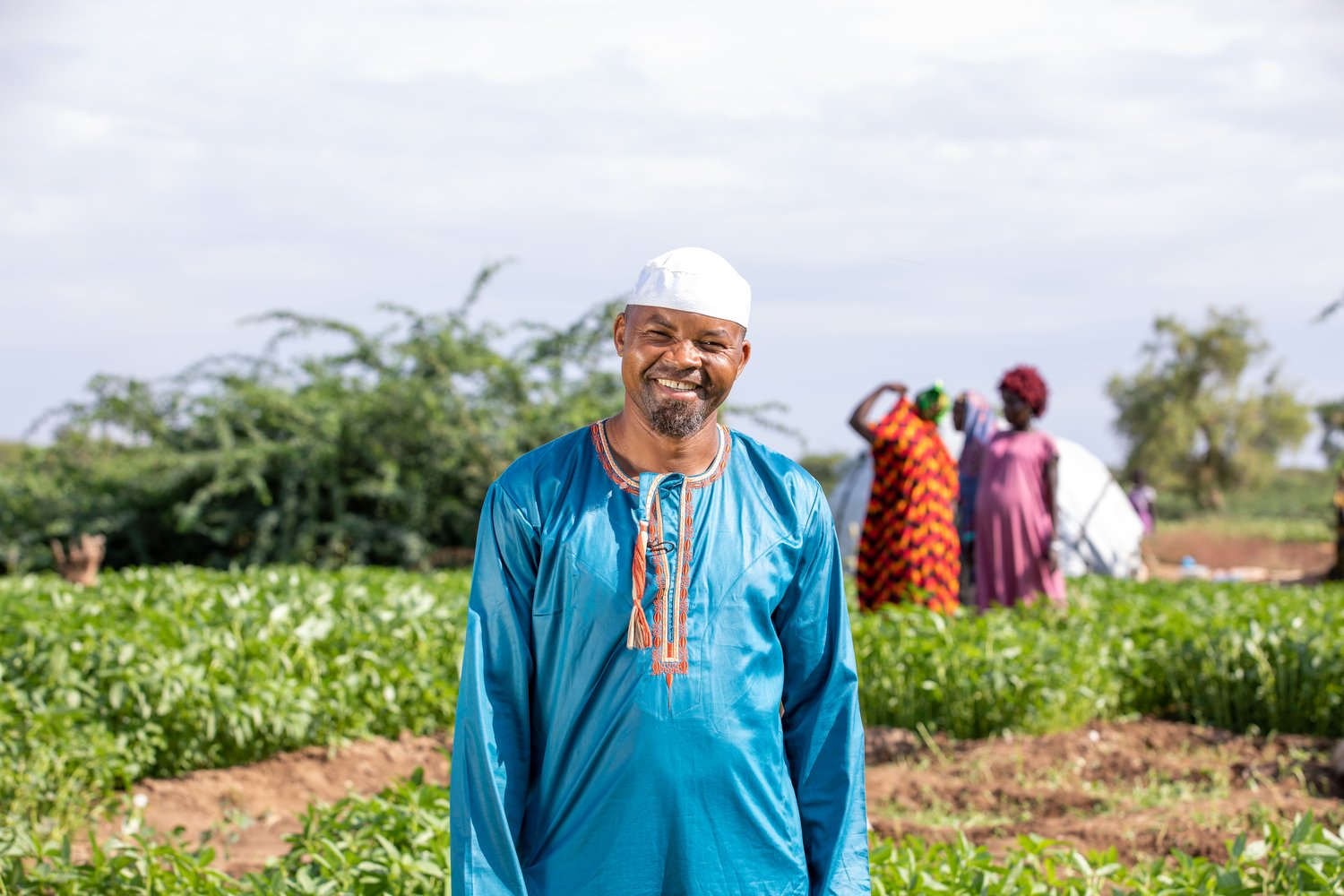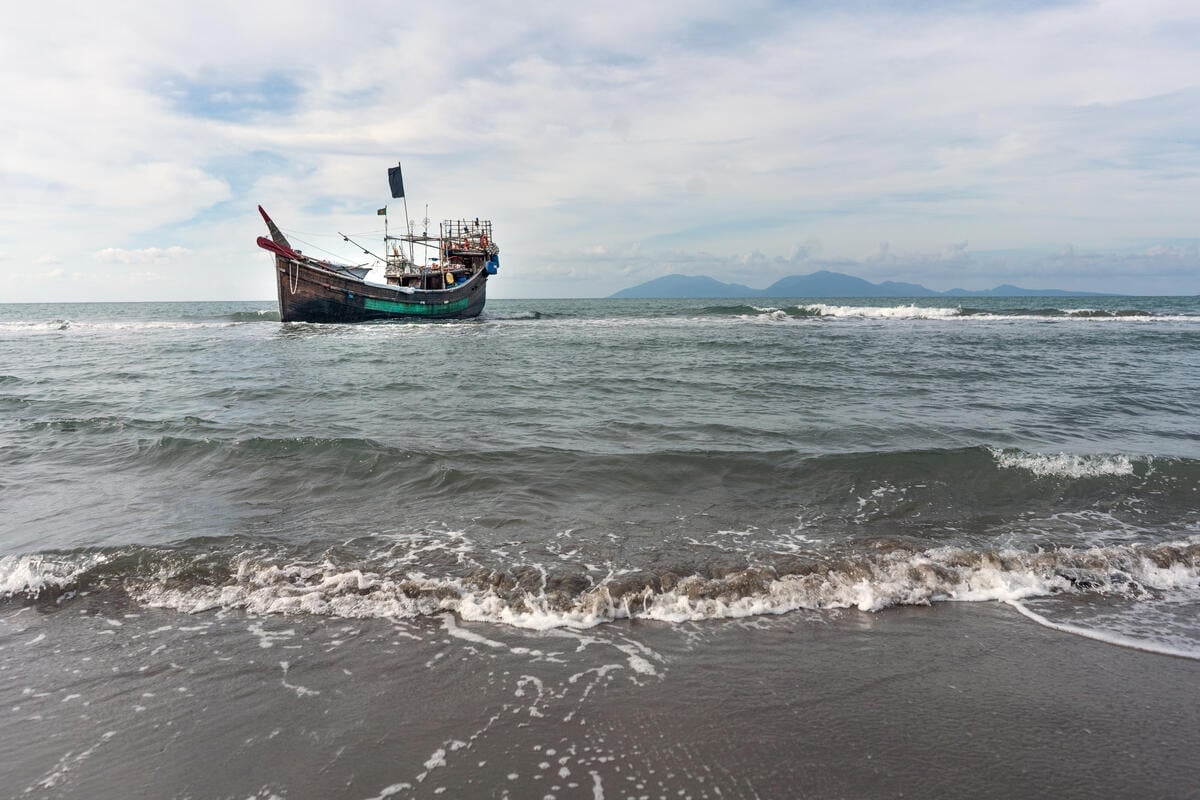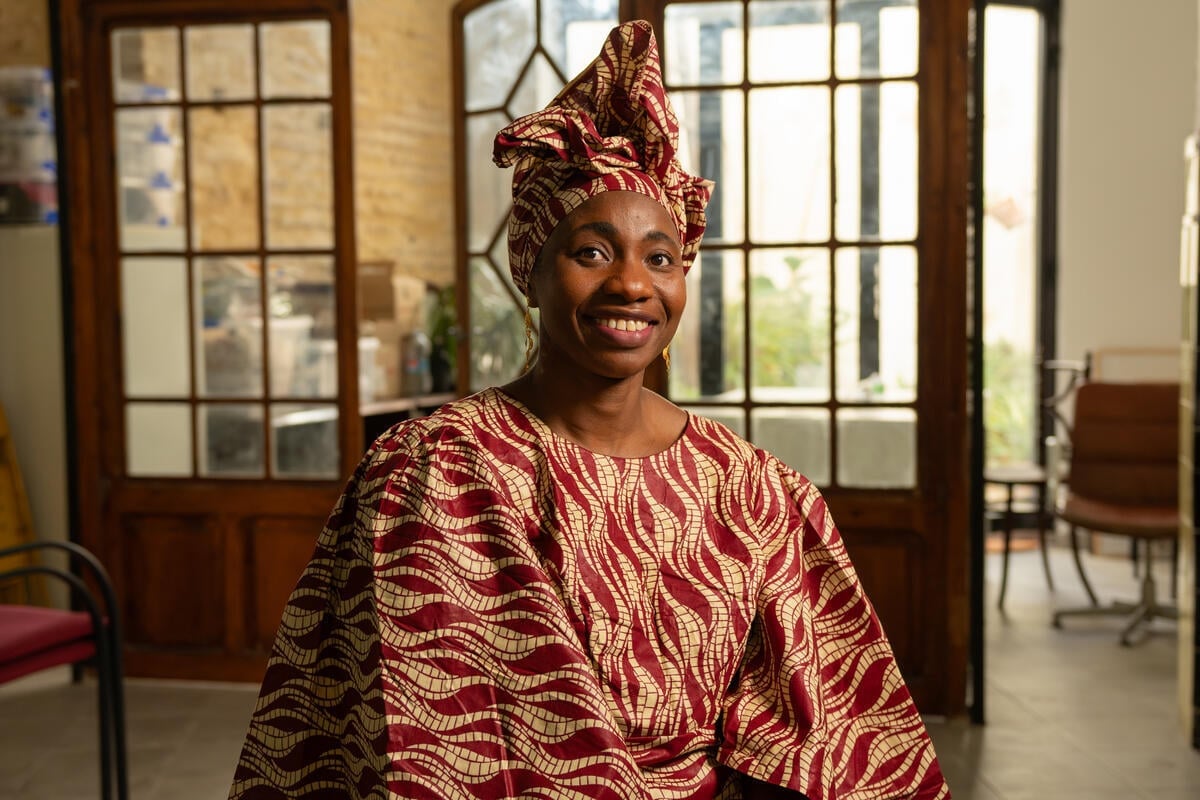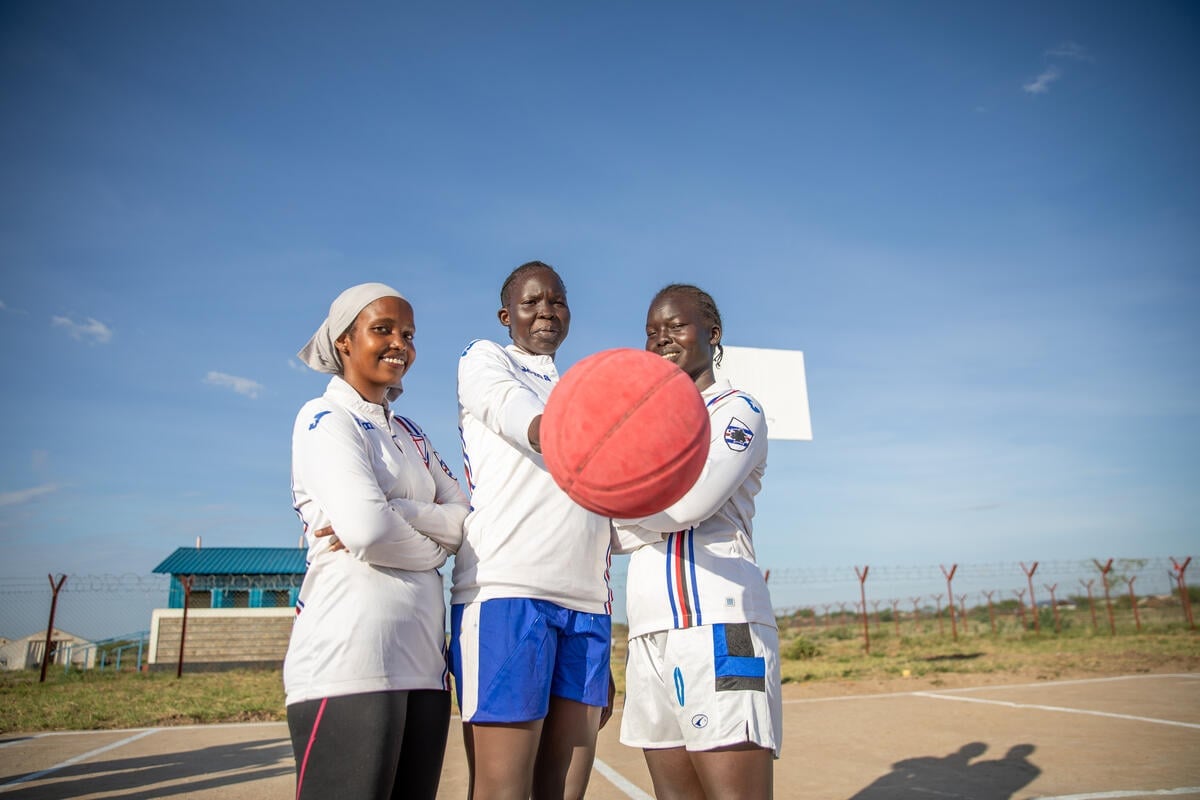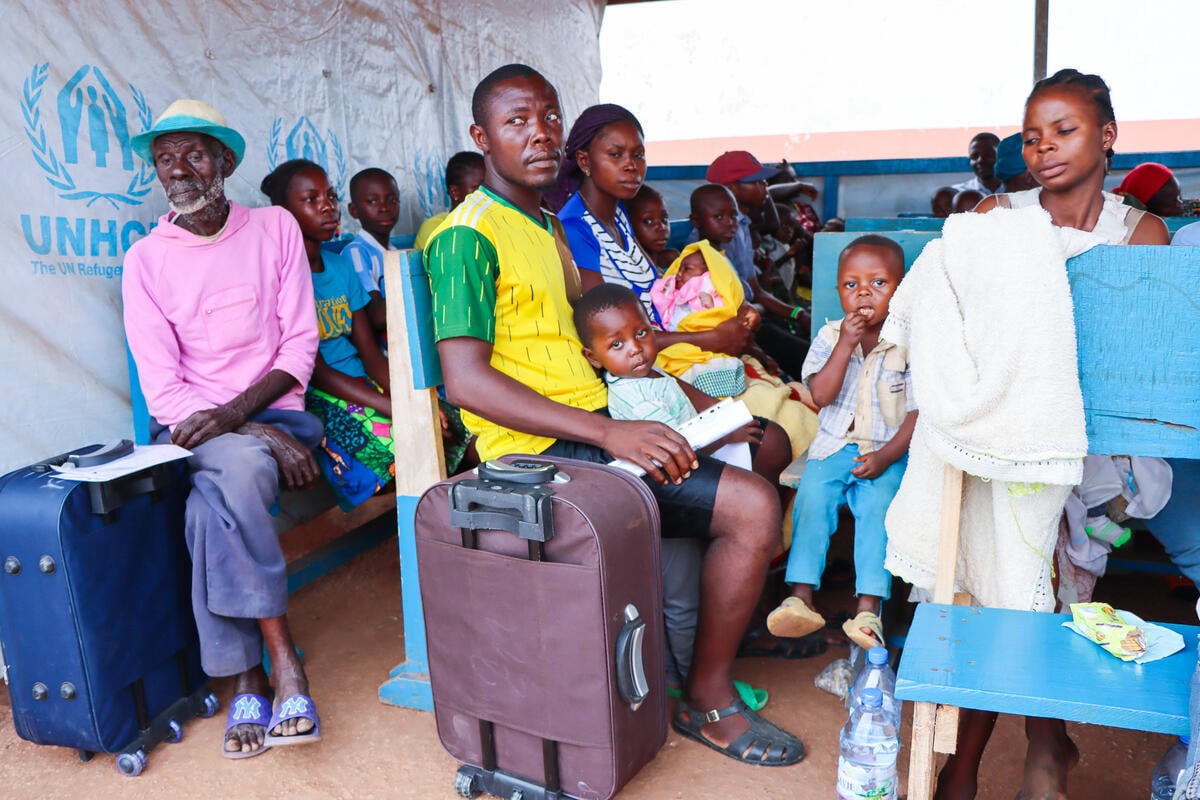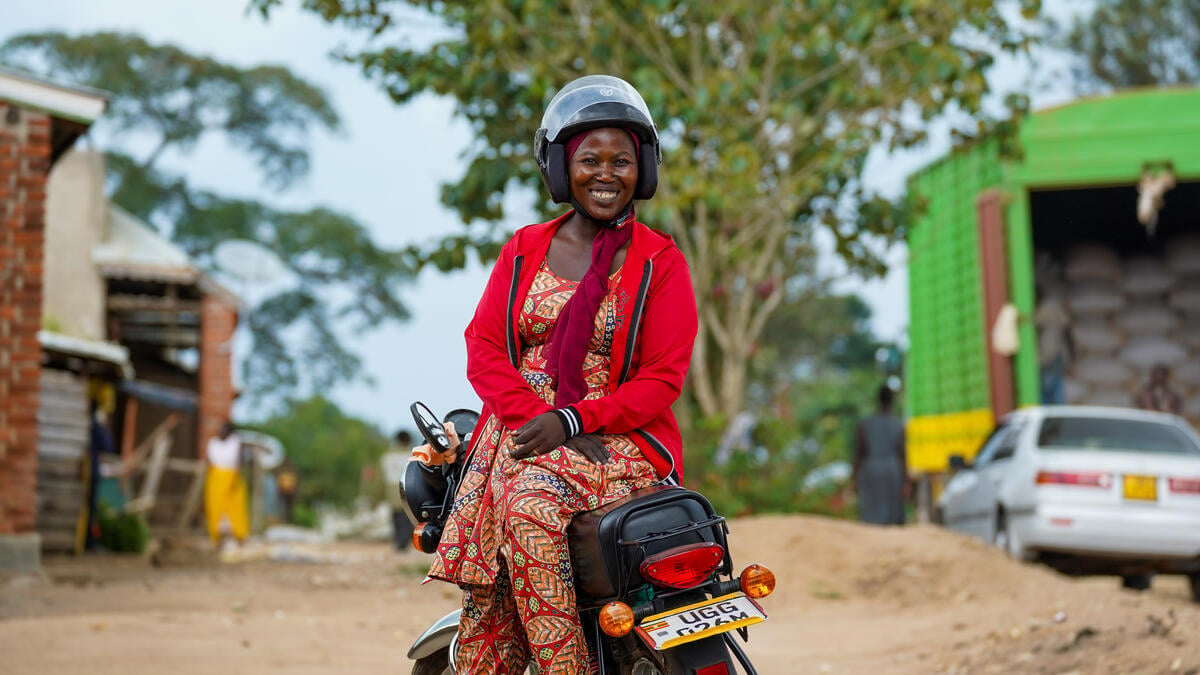Thriving refugee farm cooperative gives hope in Kenya’s Kakuma camp
Thriving refugee farm cooperative gives hope in Kenya’s Kakuma camp

Somali refugee Abdulaziz Lugazo, who chairs a farmers' cooperative at Kakuma camp, tends to land donated by the Kenyan government.
At half past six in the morning, the rising sun casts a golden light on the lush green fields that Abdulaziz Lugazo carefully tends on the outskirts of Kakuma refugee camp in northwestern Kenya.
Even at this early hour, the area buzzes with activity as groups of women traders negotiate prices for the array of vegetables ripening in the fields. “That one has been sold already,” Abdulaziz tells one of the women, pointing to a row of collard greens. “Come over to the other side and select from here.”
As more people arrive, the negotiations increase in intensity along with the heat from the climbing sun. By noon, the neat rows of vegetables have all been gathered and loaded onto waiting motorcycles.
Abdulaziz comes from a family that farmed the riverbanks in Jamame in Somalia’s lower Juba region for generations. But he was forced to flee his home in 1990 amid civil war, settling in Kenya’s Marafa refugee camp near the coastal town of Malindi before eventually moving to Kakuma.
When he first arrived at the camp in 2007, the dry and dusty landscape that greeted him appeared little suited to growing produce. But having grown up on his family's farm he was determined to use his generational knowledge to provide food for his children.
“I started growing some crops in a small garden in my shelter,” said the 41-year-old father of three. He later heard about a farm cooperative at the camp made up of mostly refugee former farmers.
Abdoulaziz Lugazo joined the cooperative so he could make use of his farming knowledge and provide for his family.
"I immediately joined the group and started cultivating a variety of vegetables, such as spinach, okra, and other drought-resistant crops," Abdulaziz said. "I am happy that the Kenyan government has provided us with land, and with the support from the UN we are able to engage in farming activities, purchase books and uniforms for our children, and impart farming knowledge to other refugees."
An inclusive refugee policy
Kenya currently hosts more than half a million refugees and Kakuma, established in 1992, is home to over 264,000 people from more than 22 countries, making it the largest refugee settlement in Africa.
While most of Kenya’s refugee population lives in Kakuma and the country’s other main camp in Dadaab, the government's new Refugee Act, which has been in force since February last year, includes significant changes in policy such as integration, access to financial services and economic inclusion, right to work and freedom of movement.
Although Kakuma is classified as a desert town, with arid conditions and temperatures reaching 40°C, many of the refugees living there are experienced farmers. In 2016, UNHCR, the UN Refugee Agency, initiated a project that supported 200 farmers, including refugees and members of the local Kenyan host community.
Today, 900 farmers are benefiting from 20 acres of farmland provided by the Kenyan government, producing on average more than 28,000 tonnes annually and earning profits of over $23,000. They also use the harvest to feed themselves and their families.
I'm happy with the farm because it helps me develop myself.
Abdulaziz was elected as the chairman of the cooperative, working alongside refugees and the host community to support farmers in their daily activities.
“I am happy with the farm because it helps me develop myself,” he said. “If you stay home, you become stressed. I have taught some members of the host community to farm and now they know how to grow crops.”

UN High Commissioner for Refugees Filippo Grandi meets Somali refugee Abdulaziz Lugazo, at Kakuma refugee camp in Kenya.
Visiting Kenya for World Refugee Day on 20 June, UN High Commissioner for Refugees, Filippo Grandi commended the steps taken by the Kenyan government to support refugees and help them rebuild their lives. He said Kenya’s inclusive policy in Kakuma has allowed refugees like Abdulaziz to work and contribute to the local economy.
“I am using this particular visit to highlight to the rest of the world that we can – and must – do more to offer such hope, opportunities, and solutions to refugees, wherever they are and whatever the context. Kenya shows that it is possible,” Grandi said in a statement.
The farmers are an integral part of the camp’s economy, supplying the local market with much-needed vegetables, increasing household income and giving opportunities to other refugees.
Livelihood opportunities
While the majority of the farmers are men, most of the traders are women from the camp.
Muhawe Selene from the Democratic Republic of Congo runs a small grocery stall in the market. She goes to the farms every morning to buy vegetables from the farmers. The 39-year-mother of eight fled her hometown of Kiwanja in eastern Democratic Republic of the Congo five years ago when armed men killed her husband.

“If we didn’t have this farm, life would be very hard," says Muhawe Selene, a Congolese mother of eight who buys vegetables from the farmers to sell at her stall in the camp.
“This farm helps us put food on the table and also provides us with a source of income,” she said. “Without an income, the children would not be in school or have clothes. This farm helps me find produce that I can sell,”
“What makes me happy about this job is that it gives me energy because selling vegetables brings me money and the children live well, they don’t roam in the streets because I am a single parent and I have to take care of all of them,”
Despite the limited opportunities in the camp, Muhawe said she knew very well that “just sitting at home would never help.” She began washing clothes for other families, saving around a thousand Kenyan shillings ($7.18) which she used to start her grocery business.
“I would like to request the agencies to help us with capital money to build a proper shop, and increase our business,” she said as she unloaded her vegetables from a motorcycle, her 4-month-old daughter on her back.
According to a 2018 study by the International Finance Corporation (IFC), the camp’s informal economy generates $56 million annually – with more than 2,000 businesses, including 14 wholesalers.
After a long day at the farm, ploughing fields and managing the cooperative's daily business, Abdulaziz returns to his two-bedroom home, where he has nurtured a spray of colourful flowers to cover parts of the bare corrugated iron outer walls.
“My hope is to be able to live in peace and run my business freely from anywhere in Kenya without facing hurdles,” he said. “I want to live like any ordinary Kenyan."


